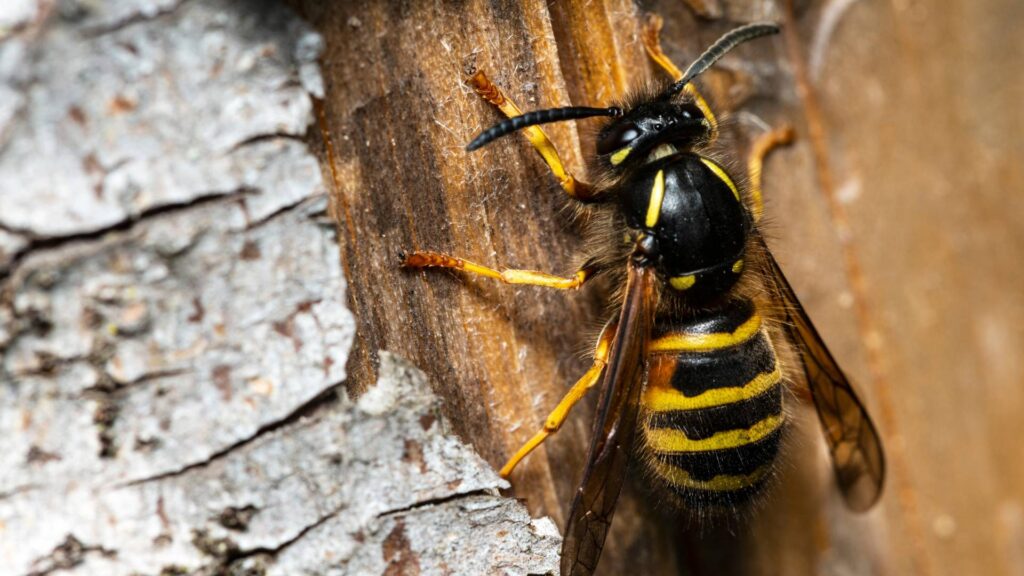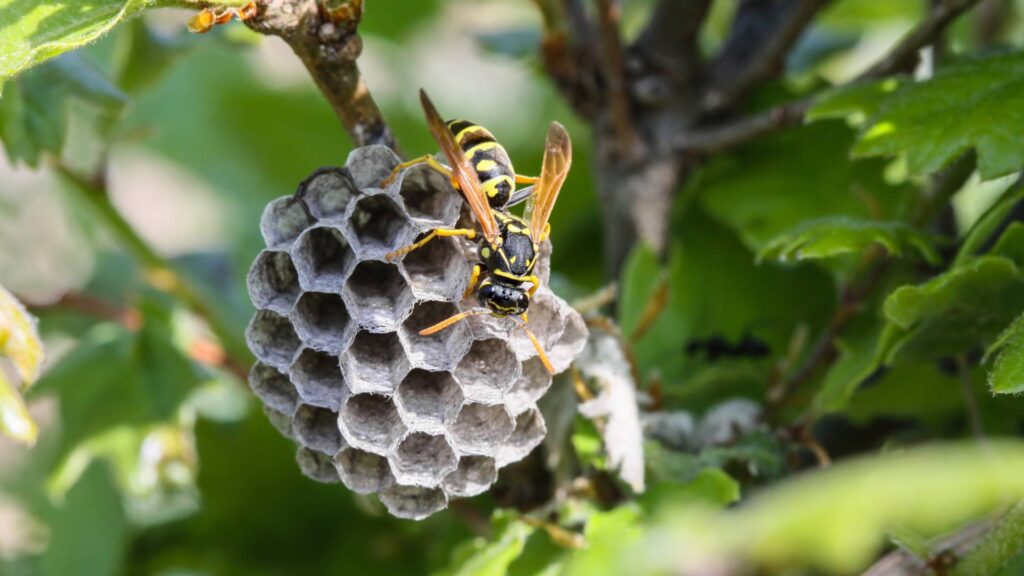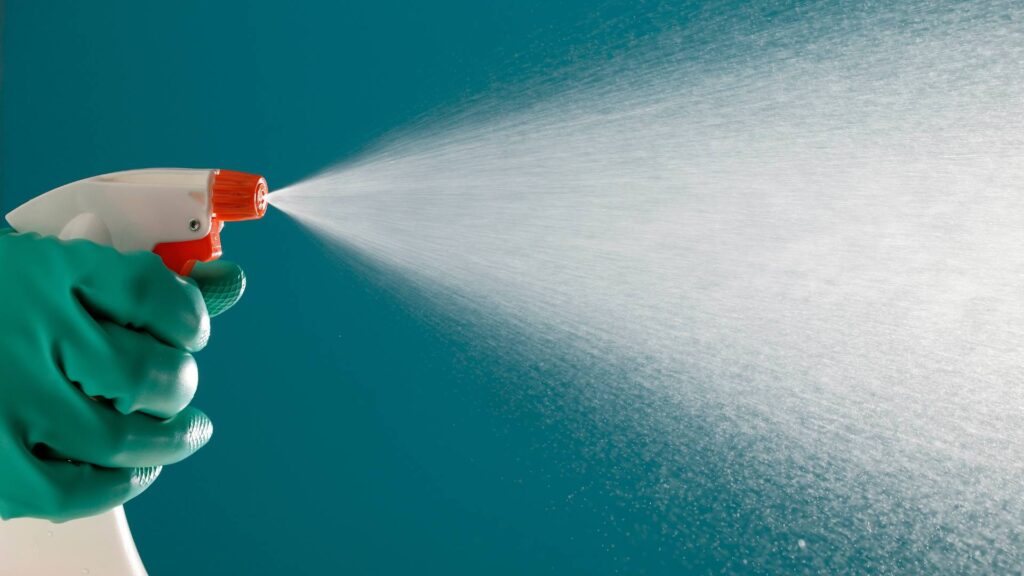Table Of Content
ToggleAs a pest control expert with years of experience in managing unwelcome guests, I’ve learned that wasps, with their buzzing presence and painful stings, can be particularly troublesome.
However, before resorting to harsh chemical solutions, consider natural methods that are both effective and environmentally friendly.
In this guide, I’ll share some proven strategies to safely remove wasp nests and prevent their return, ensuring your outdoor spaces remain peaceful and wasp-free.
Understanding the different types of wasps can help you determine the best approach for removal. Here’s a breakdown of common wasp species:
Benefits and Risks: While wasps can be bothersome, they also play a vital role in pest removal by preying on spiders and caterpillars. However, their stings can be painful and even life-threatening for those with allergies.
Early detection is key! Look for these signs of a wasp infestation:
Discover safe wasp control solutions for your home.

Looking for an eco-friendly solution? Here are natural remedies for wasp control, along with some tips for safe application:
This readily available solution disrupts the wasps’ respiratory system, effectively suffocating them. Here’s how to use it:
Safety Tip: While dish soap is generally safe, avoid spraying near flowering plants or beneficial insects like ladybugs.
Diatomaceous earth is a powder made from fossilized algae that acts as a desiccant, dehydrating and killing wasps on contact. However, caution is needed:
Safety Tip: Diatomaceous earth is safe for use around children and pets once it settles. However, supervise pets to prevent them from inhaling the dust.
Learn more about our eco-friendly wasp removal methods.
Wasps are not fans of citrus scents. You can create a natural repellent to deter them from your property:
Safety Tip: Citrus sprays are generally safe. However, conduct a patch test on a small inconspicuous area near the nest to check for any staining before widespread application.
Attract wasps with a sugary solution and trap them humanely. Here’s how to build your own:
Safety Tip: Place the trap at least 15 feet away from outdoor seating areas to avoid attracting wasps near people.
Ensuring pest control methods are safe for all family members, especially infants, is a priority for those considering eco-friendly solutions.
Schedule a wasp inspection with our experts today.

The best defense is a good offense! Here are natural methods to deter wasps from setting up shop in your yard:
Regular Maintenance: Regularly inspect your property for signs of wasp activity. Address any potential nesting sites like exposed pipes or woodpiles to discourage them. If the infestation seems overwhelming or poses a safety risk, contact a professional pest management service.
Get a free quote for professional wasp nest removal.

While natural methods are effective and eco-friendly, sometimes an infestation demands a quicker, more potent solution. Wasp killer sprays are chemical agents specifically designed to kill wasps on contact and deter future nesting. Here’s what you need to know about using sprays:
Incorporating insecticide sprays as a part of your pest management strategy can provide an effective solution to wasp problems. Considering the costs of fumigation is essential, particularly when dealing with persistent wasp infestations, to ensure effective and economical pest control solutions.
Find out how we can help you deal with wasp problems.

Drawing from extensive pest control experience, I can affirm that managing wasp populations effectively requires a balance between direct action and preventive strategies.
By employing natural removal methods and maintaining vigilant preventive measures, you can enjoy your outdoor spaces without the constant threat of wasps.
In cases of severe infestation, remember that sprays are an option, but they should be used judiciously to protect both health and habitat.
Yes, you can remove a wasp nest yourself, but it requires caution and proper safety measures. Ensure you wear protective clothing, approach the nest during cooler times when wasps are less active, and have a clear escape plan.
To get rid of a wasp nest without getting stung, utilize methods like applying insecticidal spray or dust from a safe distance, preferably at night when the wasps are less active, and wear protective gear to minimize the risk of stings.
Contact us for effective and sustainable wasp control.
Vinegar alone is unlikely to kill a wasp nest, but it can be used as a deterrent due to its strong smell. For effective eradication, stronger substances or professional pest control methods are typically necessary.
Your trusted pest control experts in Southern California. Keeping your neighborhood pest-free!